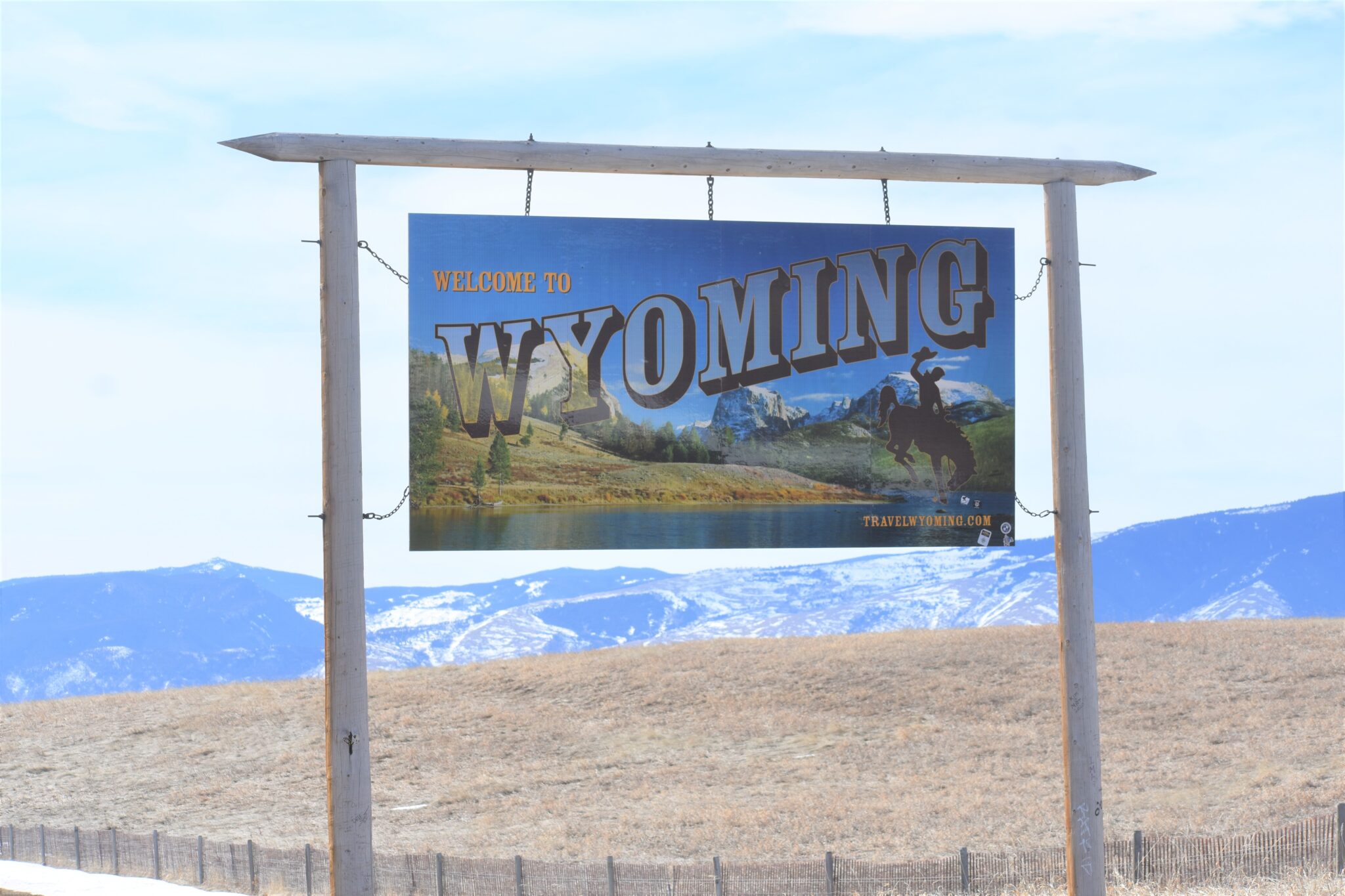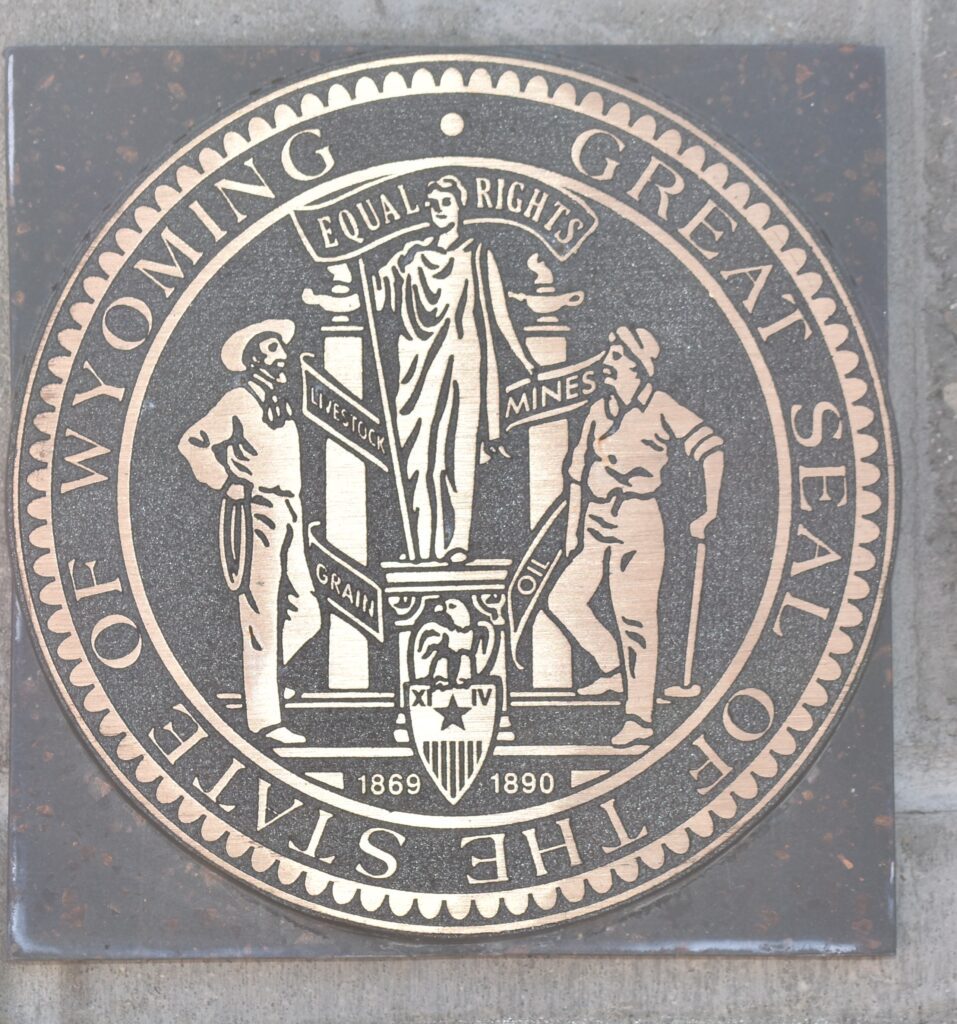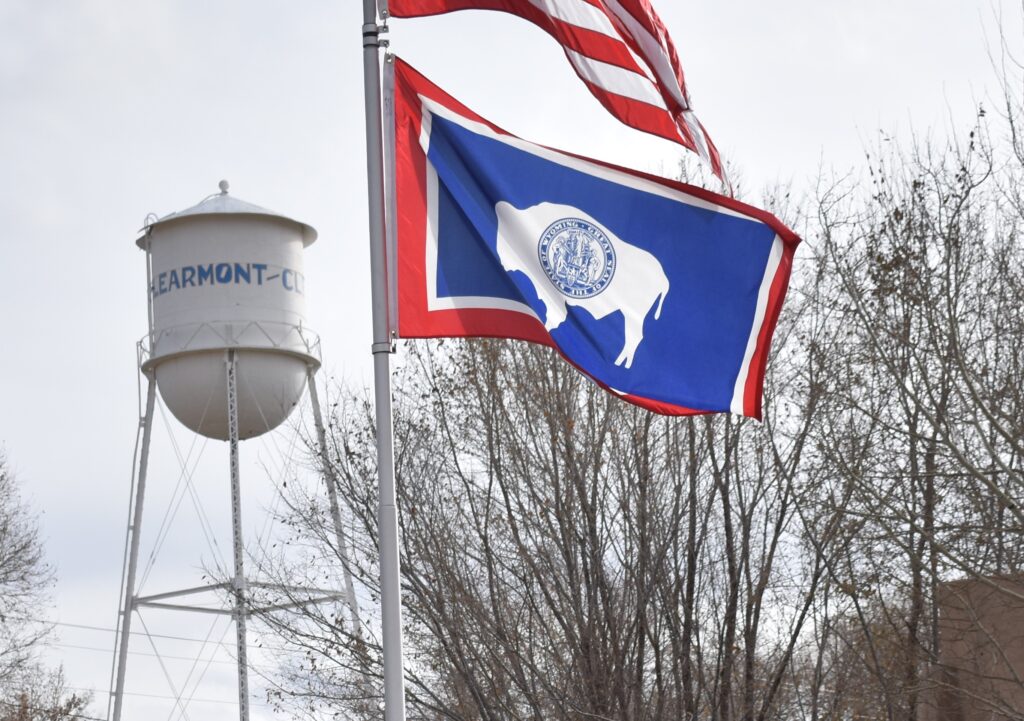News
History: Wyoming Takes First Steps Toward Statehood 136 Years Ago

Wyoming officially became a state in June of 1890. But before it could be admitted to the union, there was much work to be done by the territorial government of 1888. The first thing to be done was to introduce a bill to Congress. That happened 136 years ago this month.
The Enterprise, March 3, 1888 – State of Wyoming Washington, Feb 27.-The bill introduced on the 27 ult, by Delegate (Joseph) Carey Carey of Wyoming for the formation and admission into the union of the state of Wyoming provides that the governor of the territory shall order an election for the selection of delegates to form a state constitution, but the election shall not be held previous to June 1, 1889. The constitutional convention under the provisions of the bill will consist of about sixty members. The bill further provides for a grant of land to the state for school purpose in the amount of 500,000 acres. 100 sections of the land for an Agricultural college, 80 sections for public buildings, 25 sections for a penitentiary, and 10 sections for an insane asylum.
(It is interesting to note that back then they actually put in the bill that land was set aside for that purpose.)
The bill also provides for a grant to the State of 6,000,000 acres of arid lands, on condition that the state shall reclaim or cause such lands to be reclaimed, and shall not part with its title to any subdivision of said lands until the reclamation is complete. Mr. Carey says the territory is as well prepared for state government as 15 states were at the date of their admission; that the territory without congressional aid supports a compulsory school system and maintains a free university; that the territory is well provided with good courts and schoolhouses; that it takes care of its convicts; that the territory annually expends for the support of territorial and municipal government, support of public schools and public Improvements $600,000 and that the general government does not contribute on an average more than $30,000. The boundaries of the proposed state are the same as those of the territory.
There were also campaign type speeches given in favor of statehood, as seen in excerpts from an article from the Cheyenne Weekly Sun, October 31, 1889 – The Campaign for the Constitution and Statehood Opened.
A. C. Campbell’s Address – Mr. Campbell began by alluding to to that most charming book of boyhood’s days, “Arabian Nights” in which a wonderful cave was mentioned filled with beautiful gems and precious minerals. This cave could be opened by only one magic word “Open Sesame.”
The Treasure House – Wyoming contained within its confines more wealth than ever the author of Arabian Nights dreamed of, and it could be opened and developed by one charmed word— Statehood. Unless capital was brought here, and it would not come without statehood all our resources are comparatively useless to us. Capital will not move into a territory whenever it can find investment in a state.
More Population – Statehood will bring more population. The greater population will decrease expenses proportionately of all public institutions, and the burden of taxation would be constantly lessened. With greater population comes added wealth and greater ability to pay taxes.
Judge Carey’s Address – The closing speech of the evening was by Judge Carey. It was a strong, practical and able address. The judge showing by actual figures and statistics that Wyoming had better claims for statehood than most of the twenty five states already admitted. He instanced the accessible wealth and population of most of these states, and drew direct comparisons with their situation and that of Wyoming. He said Wyoming had had a remarkable increase in wealth. He also showed conclusively that state government would be cheaper and more economical to the people and gave the figures to sustain his statements. He said that few people appreciate our resources. There was no state in the Union with such great natural wealth. Laramie county alone could support a state government. He closed with an earnest appeal to the people to ratify the constitution, not to dam up the stream of progress or turn back in the path of honor, dignity and prosperity. At the close of Judge Carey’s address and the adoption of the resolutions presented, the meeting adjourned to meet again November 4.

The railroad running through Wyoming had a great deal to do with Wyoming becoming a state, as this short article from Bill Barlow’s Budget, January 11, 1888 – The Railway Register, the recognized highest authority in railroad matters, which never notices anything unless it is of such importance as to be noised abroad very generally, says: “Wyoming territory has added 800 miles to her railways during 1887, and has affairs in excellent shape for still farther extensions next spring. Wyoming will give a good account of herself, and be knocking at the door of congress for admission to statehood in the near future.”
And, many towns asked the question of the residents about statehood. This from The Sheridan Post, June 20, 1889 – Do We Want Statehood. The question of statehood for Wyoming is now receiving considerable attention throughout the territory and is the principal topic of discussion and conversation to be heard on every hand. In this, as in every important step to be taken in life, everyone interested man; manner in the welfare of the territory a large or in its citizens considered as a whole, should take a lively interest.
The question naturally arises, would it be a benefit or a detriment? There can be no stronger argument in its favor than the fact that statehood has not been forced on any of the number of states of the Union, but on the other hand many of the former territories have been compelled to knock at the door of statehood for many years before they were granted admission, and have we heard any complaints from those who have been successful in their suit? Has it been left for the citizens of Wyoming to discover the important fact that statehood is not desirable and profitable? That a system of espionage and subserviency like the Indian wards of the government, is more to the interests of the citizens of the territory? Do we hear complaints from any of the states of additional expense and other financial disadvantages? We answer most emphatically, no. We believe those who have considered this matter and are still opposed to statehood for our great territory are lacking in sound judgment and discretion or, are fools, knaves or demagogues.
Where else in the world are there so great possibilities; such vast amounts of hidden and undeveloped resources; so large a proportion of the people as enterprising and progressive? Everything is in proper keeping for the development of the combined physical and mental energies of man. Here are to be found at once the hardihood of character which conquers difficulties, the climate which stimulates exertion, and the natural advantages which reward enterprise. Nature has marked out Wyoming for exalted destinies. It is no place for the non-progressive and let them go hence. All the silly talk about extra expense if taxes and of maintaining state government is the sheerest folly. It has been almost already demonstrated from history and the liberal grants and provision of the proposed bill that our expenses would be reduced rather than vantages of confidence, attracting capital and capitalists; the standing and influence it would secure in the sisterhood of states and the management of national affairs, and the stimulating of our industries and the development of our natural resources would all work to our advantage rather than to our detriment.
The argument that some other portion of the territory would reap greater benefits than ours is certainly not good logic, as ‘tis better to have half a loaf than none. Some persons are always afraid to expend a dollar lest it never return. Such persons are usually found at the rear end of the procession. Investments should, of course, be made judiciously, but if a dollar be invested so that the returns will be two dollars or five or ten is it not a good investment? The farmer, usually and under favorable conditions is not afraid to spend his dollars for wire, posts and farm implements and machinery, nor the merchant to invent in merchandise and buildings, and so we believe it is with the subject under discussion. A dollar expended for this purpose should not be considered as lost but as an investment better than two per cent per month.

Although today, with all the states well established as the United States of America, we can take a look back 136 years ago this month and see the steps Wyoming took to lay the road from being a territory to becoming a state.

